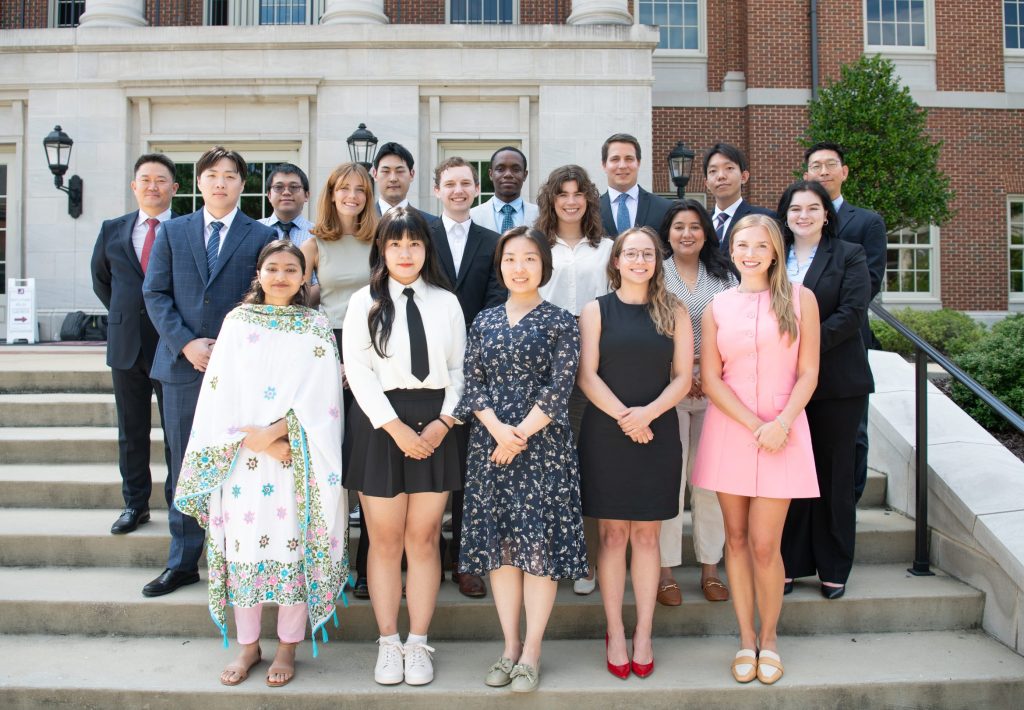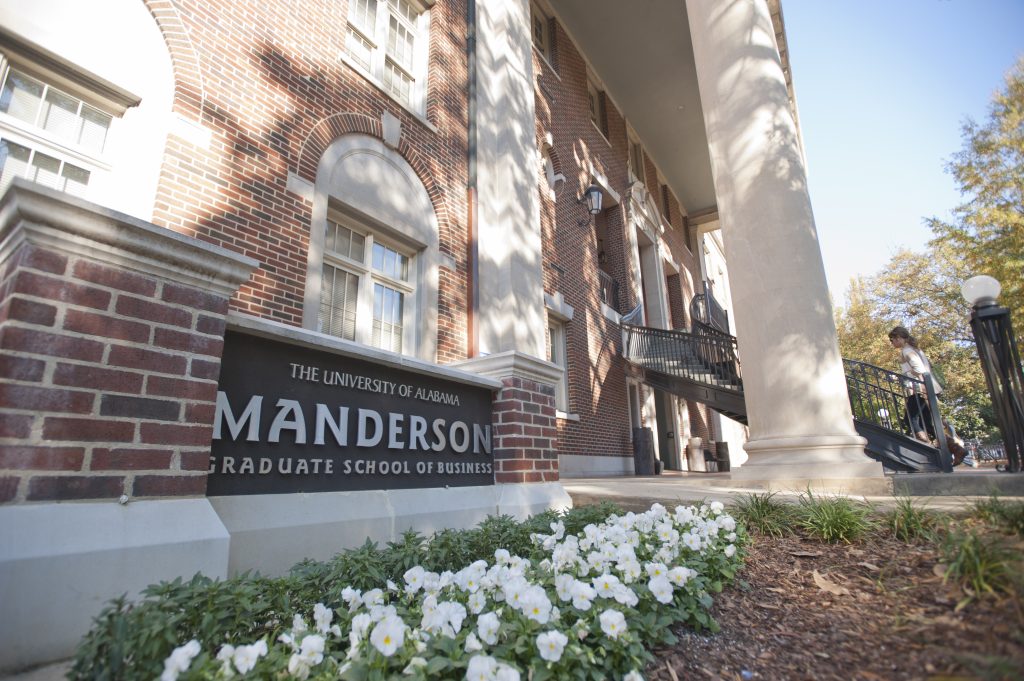The Economics Ph.D. program provides students with the advanced training and knowledge necessary to pursue positions leading to careers in research and teaching at other institutions of higher learning, careers in economic analysis and forecasting, and careers in public policy analysis within local, state, or federal government.
We seek to admit, train, and graduate students who have initiative, enthusiasm, and a desire to become scholars.
Our professors enable students to attain more profound insights into the economic forces that shape health care provisions and utilization, international trade and development, labor and natural resources markets, and domestic and international macroeconomic and monetary policies.

The Economics PhD begins approximately three weeks before the start of the fall semester Advanced Mathematical Economics (EC 600). This course is designed to review all the necessary mathematical skills and methods that students will need to be successful in the Economics PhD Program
Required 1st Year Courses
Fall Semester:
Spring Semester:
After completion of the first-year course work, students are required to pass qualifying exams in macroeconomics and microeconomics. See the “Qualifying Exam” tab for more information
FIELD AND SUPPLEMENTARY COURSES
After passing qualifying exams, students must take six field courses and at least two supplementary courses. These courses can be taken during either their second or third year of PhD study.
Students can choose from two groups of courses: Group A and Group B. Group A courses are considered tools for economic research. Group B courses are considered field courses.
Students work with the Economics PhD Coordinator and their dissertation advisor to identify what courses are best for them based on their interests.
Group A includes courses such as: Causal Inference, Financial Econometric Modeling, Nonparametric Econometrics, Experimental Economics, and other econometrics courses.
Group B includes courses such as Behavioral Economics, Environmental Economics, Industrial Organization, International Finance, Macroeconomics, Monetary Economics, Political Economy, Public Economics, Risk and Insurance, Urban Economics, and other field courses.
Admission decisions are made by the Economics PhD Admissions Committee. Factors considered include:
TOEFL Statement
As per the policy of the University of Alabama Graduate School, a student whose first language is not English must submit an official score report for the Test of English as a Foreign Language (TOEFL), the International English Testing System (IELTS), or the Pearson Test of English (PTE). The minimum score for admission to a degree program or for nondegree admission is 550 on the paper-based TOEFL or 79 on the iBT. The minimum IELTS score for admission to a degree program or for non-degree admission is 6.5. The PTE minimum score for admission to a degree program or for non-degree admission is 59. TOEFL, IELTS, or PTE scores must be less than two years old at the time of intended initial enrollment at The University of Alabama. Should TOEFL, IELTS, or PTE scores become more than two years old prior to enrollment, the student will be required to retest and submit an acceptable score before enrolling. The TOEFL, IELTS, or PTE will not be required from an applicant who fulfills the following criteria: 1) has been in residence in the United States at a regionally accredited U.S. college or university, and 2) has been enrolled in coursework for two consecutive years immediately prior to enrolling at The University of Alabama or has earned a degree from that college or university within three years of enrolling at The University of Alabama. The Test of Spoken English (TSE) is recommended for international students who wish to be considered for teaching assistantships.
Admission to the Economics PhD program is on a rolling basis, meaning applications can be submitted at any time.
To receive full consideration for admission in funding, please submit your application by January 15th, as decisions for funding are usually made by early February.
As a part of the regular sequence in the Economics PhD program, students are required to pass a qualifying examination, which is administered at the end of their first year of study, starting in June.
The exam is comprised of two parts: microeconomics and macroeconomics. To be eligible to continue in the PhD program, a student must pass both parts of the exam. If a student has successfully passed both parts of the exam by the end of August, the student will be allowed to continue in the PhD program. If students need to retake the exam, this opportunity is offered before classes start in August.
During the third year, students are expected to commence work on the dissertation. Students are expected to have identified a primary advisor by the start of the fall semester of their third year and formally begin work on their thesis.
Writing a dissertation is the final test of research skills. It requires an understanding of relevant literature and methodology, as well as the ability to think independently. PhD candidates must:

Tavoy Reid: Assistant Professor, Niagara University
SunAh An: Assistant Professor, Bowling Green State University
Michael (Buddy) Anderson: Associate, Analysis Group
Zachary Dorobiala: Regions Bank, Quantitative Risk Analyst
Li Zhang: Lafayette College, Visiting Assistant Professor
Chris O’Connor: College of Holy Cross, Assistant Professor
Nick Glenn: University of Akron, Assistant Professor of Practice
Natalie Millar: Hoover Institute, Stanford University, Post Doc
Rushaine Goulbourne: Brookings Institute Post Doc
Hasan Isomitdinov: University of Alabama – Instructor of Economics
Virginia Zhong: National School of Agricultural Institution and Development at South China Agriculture University
Jiahong Gao: Zhongnan University of Economics and Law
Mia Goodnature: PriceWaterhouseCoopers
Andre Harrison: California State University at Long Beach
James Herndon: AEA Group
Fan Wu: Shanghai University
Cuiyi (Tina) Zhang: USAA
Piyali Banerjee: Ashoka University
Karin (Kaveh) Hasani: Economic Development Company
Alice Sheehan: University of New Hampshire – Visiting Assistant Professor
Anne-Charlotte Souto: University of Pittsburgh – Postdoc
Shamar Stewart: Virginia Tech University, Ag Econ Department
James Matthew Hampton: University of Northern Iowa
Laura Connolly: Michigan Tech University
Zhe Yang: Wofford College – Visiting Assistant Professor
Chi-Yang Chu: National Taipei University
Chris Whaley: University of Alabama – Clinical Instructor
Boyi Zhuang: The Alabama Center for Insurance Information and Research
Charles Martin (Marty) Hanby: Texas A&M-Central Texas
Daniel Otto: Federal Reserve Bank of Atlanta
Christopher Mann: University of Nebraska-Lincoln
Juan Medina: University of Juarez-Mexico
Michaela Patton: U.S. Census Bureau
Anna Cai: University of West Alabama
2014:
EJ Ume: Miami University
Karl Boulware: Wesleyan University
Billy Hankins: University of South Carolina-Upstate
Jared Levant: Mississippi State University – Visiting Assistant Professor
Miesha Williams: Morehouse College – Visiting Assistant Professor
Paul Jones: Pepperdine University
2013:
Ming Meng: Temple University
Ezekiel Nichols: Sears-Chicago
Linyuan Cai: University of West Alabama
2012:
Ms. Hye Jin Lee: University of Texas-Brownsville
2011:
Will Walsh: Samford University – Visiting
Stefan Mullinax: College of Lake County
Sondra Collins: University of Southern Mississippi
Bradford Patterson: University of Virginia-Law
2010:
Patrick Cooper: IRS-Chicago
Hoda El-Karasky: University of Alabama – Clinical Instructor
Eric Olson: Pepperdine University
Cristina Lira: Returned to Italy
2009:
Mehmet Yaya: Eastern Michigan University
2008:
Ms. Yu Liu: Deloitte Touche Tohmatsu Tax, LLP-Atlanta
Ms. Junhua Yu: University of Utah-Pharmacotherapy Outcomes Research Center
Razvan Pascalau: State University of New York-SUNY-Pittsburgh
April Brashier: Birmingham Southern University
rghammond@ua.edu
(205) 348-0819
Alston 247
General questions about the application process?
Are you ready to gain the Manderson Advantage?

This website uses cookies to collect information to improve your browsing experience. Please review our Privacy Statement for more information.